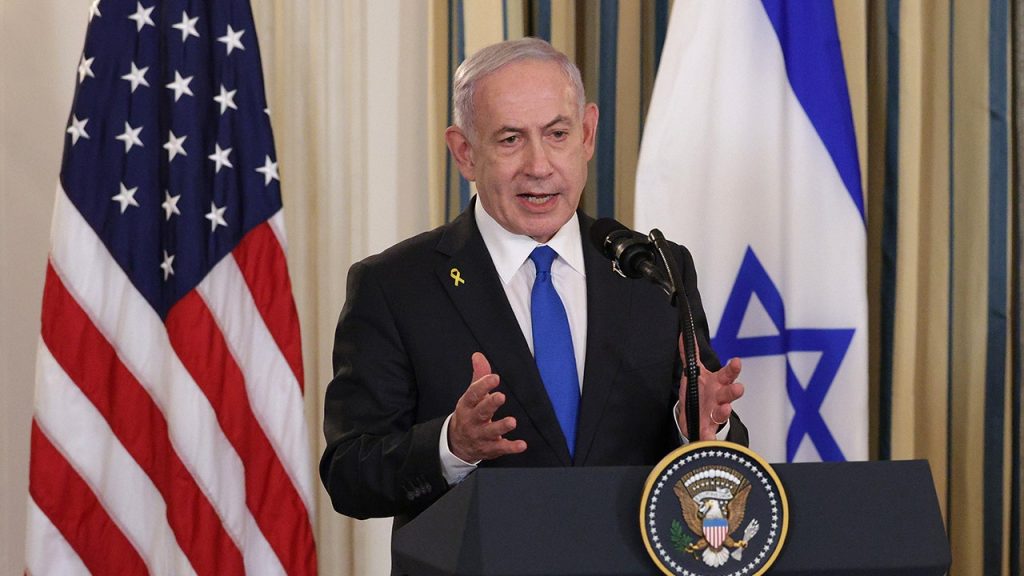Two Years After Oct. 7: Israel’s Ongoing Fight for Existence
As Israel marks the second anniversary of the October 7, 2023 Hamas terror attack, Prime Minister Benjamin Netanyahu’s reflections capture both the nation’s enduring grief and its determination to prevail. In a poignant statement shared on social media, Netanyahu characterized the continuing conflict as “a fateful war for our existence,” while asserting with conviction that despite the devastating blow dealt by Hamas, “our enemies didn’t break us.” The scale of the tragedy remains staggering—infants, children, and the elderly were murdered in their homes and communities near the Gaza border, while 251 men and women were abducted into tunnels beneath Gaza. This single day stands as the deadliest for Jewish people since the Holocaust, a stark reminder of why Netanyahu and his wife Sara “bow our heads in memory of our martyrs and fallen,” while maintaining an unwavering commitment to “return all the abductees, both the living and the fallen.”
The October 7 attack targeted not only Israeli border communities but also the Nova music festival, where terrorists massacred civilians in a scene of unimaginable horror. Families were slaughtered in their homes, and people of all ages were kidnapped—a coordinated assault that ignited what Netanyahu now calls “the War of Rebirth on Seven Fronts.” The prime minister’s framing of the conflict emphasizes what Israel perceives as an existential struggle, not merely a border skirmish or limited military engagement. “Our bloodthirsty enemies hit us hard, but they have not broken us,” Netanyahu declared, warning that “whoever raises his hand against us will suffer unprecedented crushing blows.” Such language reveals the deeply personal nature of this conflict for Israelis, who see themselves fighting not just for territory but for their very right to exist in their ancestral homeland.
Throughout his address, Netanyahu balanced expressions of national grief with assertions of military achievement and strategic progress. He praised the Israel Defense Forces soldiers and commanders for “waging a fierce war against those who seek our harm on every front,” while claiming that Israel has “broken the Iranian axis” and reshaped the region’s geopolitical landscape. This juxtaposition of “immense pride in our country’s miraculous resilience” alongside the “immense pain” of loss captures the complex emotional reality for Israelis two years into this conflict. The prime minister’s rhetoric reflects a leader attempting to provide both comfort and confidence to a traumatized nation still mourning its dead while actively defending against threats from multiple directions.
In outlining Israel’s war aims, Netanyahu remained focused on three central objectives that have guided the nation’s military and diplomatic strategy: securing the return of all hostages, eliminating Hamas’s control in Gaza, and establishing permanent guarantees that Gaza will never again threaten Israel’s security. These goals represent the minimum conditions Israel considers necessary for any sustainable resolution to the conflict, highlighting the challenge facing negotiators currently meeting in Egypt to discuss President Trump’s peace plan. With 48 Israeli hostages still in captivity, the human dimension of this conflict remains painfully present for Israeli families awaiting news of loved ones who have spent two years in Hamas tunnels.
The ongoing negotiations in Egypt offer a glimmer of hope against the backdrop of continued fighting. President Trump’s involvement signals high-level international engagement in finding a resolution that addresses Israel’s security concerns while potentially ending the humanitarian crisis in Gaza. However, Netanyahu’s statement, with its emphasis on achieving decisive military victory, suggests that Israel remains committed to its security objectives even as diplomatic avenues are explored. The prime minister’s call for national unity—”Together we will stand, and together, with God’s help, we will win”—indicates that Israel sees itself at a historic crossroads where internal cohesion is as crucial as military strength.
As Israel commemorates this somber anniversary, the October 7 attack and its aftermath continue to reshape not only Israeli society but the entire Middle East. Netanyahu’s characterization of the conflict as “the War of Rebirth” suggests that Israel views this moment as transformative—a painful but necessary crucible through which the nation must pass to secure its future. Two years after Hamas terrorists shattered the morning calm of southern Israel, the wounds remain raw, the hostages’ families continue their agonizing wait, and soldiers fight on multiple fronts. Yet through Netanyahu’s words emerges a portrait of a nation determined to emerge stronger from its trauma, committed to rescuing its captured citizens, and resolved to create security arrangements that prevent such atrocities from ever recurring. As negotiators work in Egypt and soldiers stand guard along Israel’s borders, this second anniversary stands as both a memorial to those lost and a testament to Israel’s endurance in what its leader describes as an existential struggle.


